Traditionally, government services involved those delivered in person by individual departments in different location to the public in various locations throughout the country.

However, now government across the globe can deliver information and services to their citizens at anytime, anywhere and from any platforms or devices through the implementation of digital government services or e-government.
Digital government services or e-government can be defined as service delivery within the government and between government and the public through the utilisation of information and technologies.
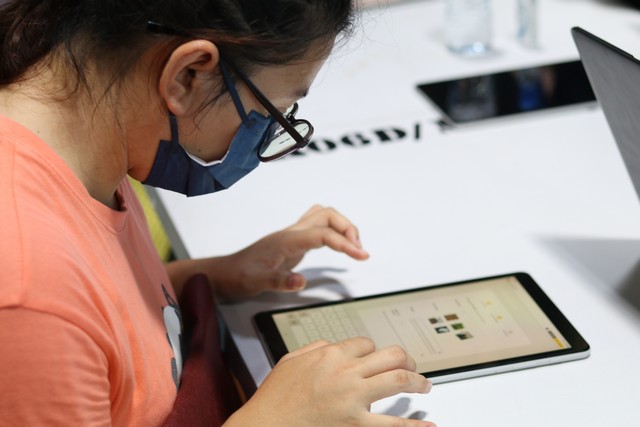
| Benefits of e-government services; |
| * Better user experience for members of the public * More public participation * Better collaboration between government departments and agencies * Internal efficiency and productivity * Reduce labour cost and paper usage * More innovation |
Malaysia’s starting point for the digitalization of service delivery systems or electronic government (e-government) started in 2016 through the introduction of the Multimedia Super Corridor (MSC).
Described as visionary and advanced for its time when it was first introduced, it was said that it was this early adoption that equipped Malaysia to embark on the current ambitious agenda of embracing Industry 4.0 as it requires a digital and industrial revolution to transform the manufacturing and services sectors in multiple ways.
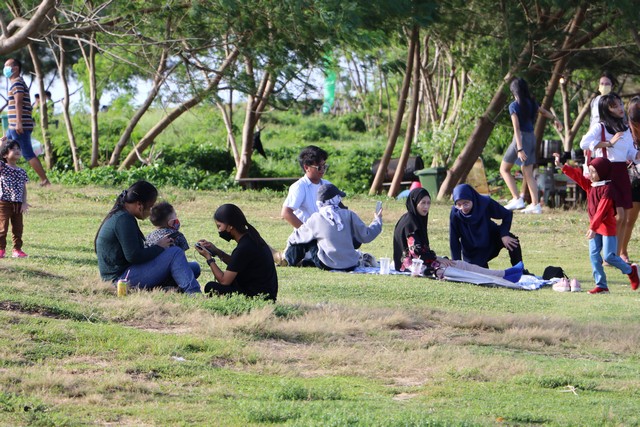
The effort encompassed the services of the Federal Government, the State Government, and the Local Authorities, including the agencies placed under them.
| Among the pilot products and services put in place were as follows: |
| * Government Office Environment – Electronic Document Management System (GOE-EDMS) for electronic document management; * e-Khidmat for Frontline Agencies such as the Road Transport Department (JPJ) and the Royal Malaysian Police (PDRM); * Project Monitoring System II (SPPII) for project management; * Human Resource Management Information System (HRMIS) for human resource management; * ePerolehan system for government acquisitions; * e-Kehakiman and e-Syariah for Civil Courts and Syariah Courts respectively; and * e-PBT for services by the Local Authorities (Source: https://www.malaysia.gov.my/) |
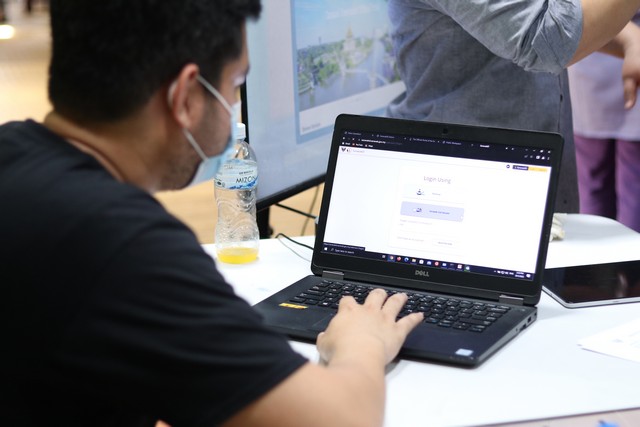
As citizens expect the civic experience to be as simple and seamless as what they receive from private sector businesses, digital services delivery is getting prioritized by governments worldwide.
Moreover, the COVID-19 pandemic in early 2020 with its social distancing measures has emphasis the need for online services as the operation of the Government’s counter services has been restricted to the public.
It is due to creative digital solutions and technologies that societies and businesses can interact and continue operations remotely.
On 22 April 2020, the government, decided to direct all ministries to examine steps that can be taken to enable services to be delivered to the people in faster and easier ways as the new normal post-COVID-19, in its efforts to revive the livelihood of the people and the nation’s economy.
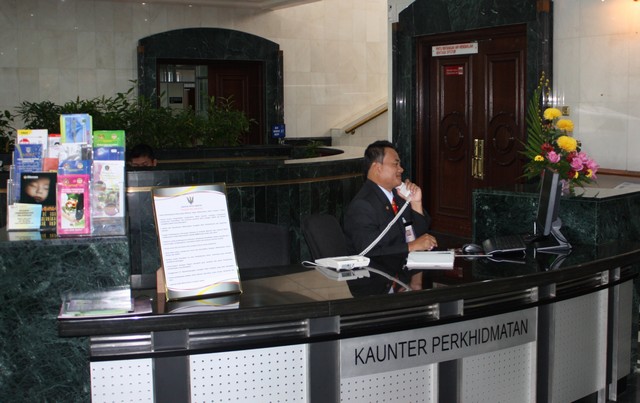
In executing this effort, the Malaysian Administrative Modernisation and Management Planning Unit (MAMPU) of the Prime Minister’s Department (Jabatan Perdana Menteri, JPM) had carry out a pilot project involving two (2) frontline agencies, namely the Malaysian Immigration Department (Jabatan Imigresen Malaysia, JIM) and the Road Transport Department (Jabatan Pengangkutan Jalan, JPJ) on 21 August 2020.
On 9 November 2020, the project charter was signed between MAMPU as the pilot project coordinator and JIM and JPJ as the pilot agencies. This pilot project will set the benchmark in empowering the government’s end-to-end (E2E) services so that its delivery can be made easier and faster.
Overall, the result of this pilot project has been very encouraging with an increase in the use of E2E services for JIM and JPJ by 170.17 per cent, compared to the targeted 10.00 per cent.
As a result, both agencies have delivered services or products to the people, and at the same time reducing overcrowding at the premises and the risk of COVID-19 infections.
On 19 February 2021, the Malaysia government introduced the Malaysia Digital Economy Blueprint (MyDIGITAL) to improve standards of living and wellbeing; for businesses to enjoy greater opportunities to expand their operation and market by optimising resources; and the Government to be able to provide more efficient and effective services.
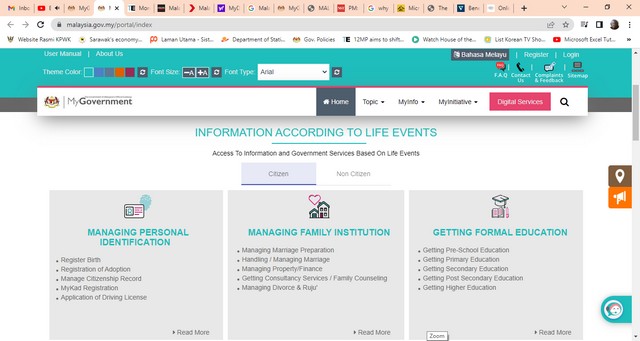
Under the blueprint, among the targets includes having about 80 per cent of E2E online government services integrated by 2025.
| Targets for government sector under MyDIGITAL; |
| * 100% civil servants to possess digital literacy * 80% end-to-end online government services * All ministries and agencies to provide cashless payment option in 2022 * 80% usage of cloud storage across the government in 2022 (Source: Malaysia Digital Economy Blueprint) |
Ultimately, under MyDIGITAL, it aims to have a digitally-enabled government to provide integrated end-to-end online government services which are more efficient, effective, and transparent.
At present, members of the public may access to information and government services online by visiting MyGovernment website.
To access online government services, please visit https://www.malaysia.gov.my/portal/index





